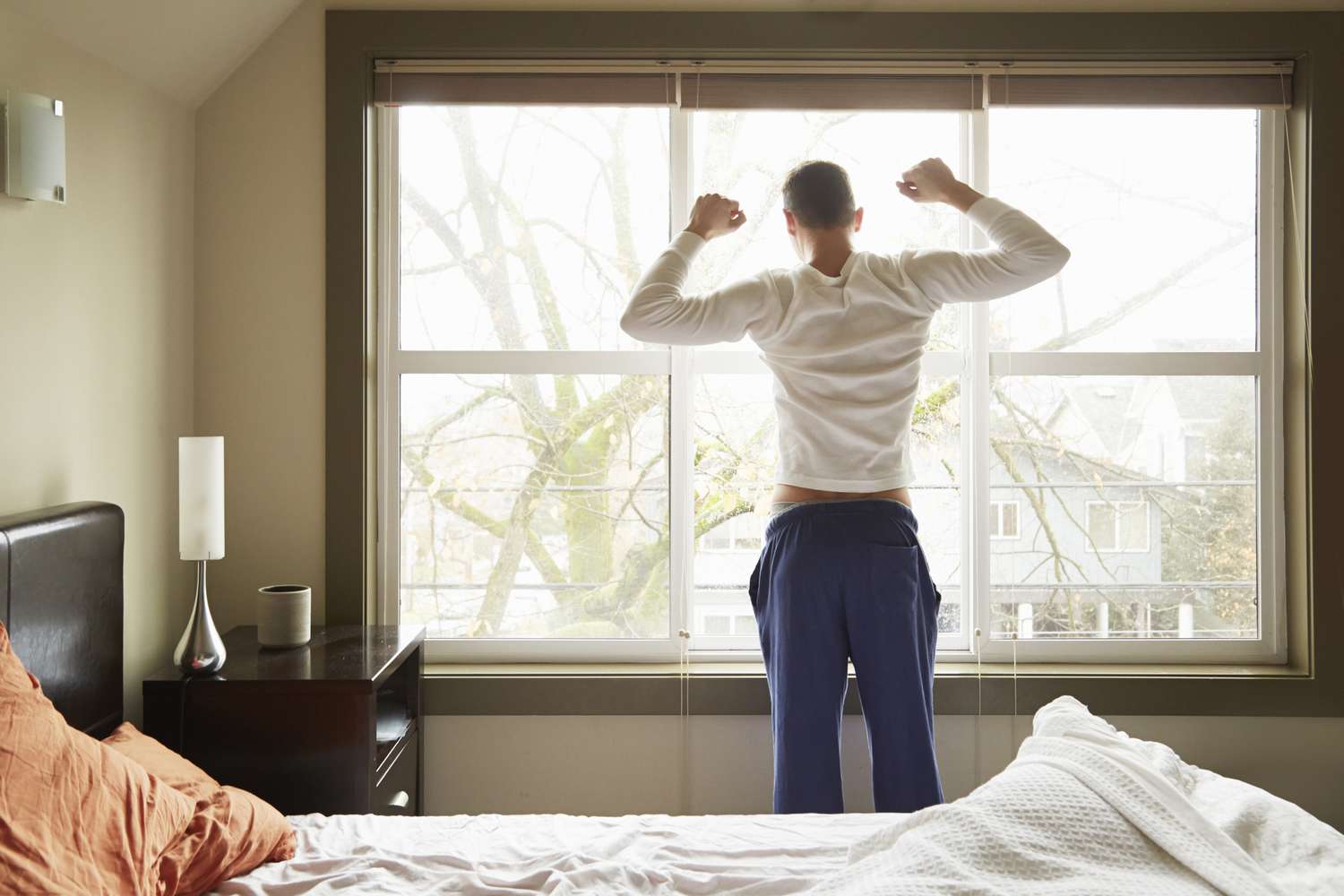1. Invest in a Better Mattress and Bedding
To ensure that you are comfortable enough to unwind, it is essential to have the ideal mattress for your requirements and tastes. Purchasing a supportive pillow and mattress can help guarantee that your spine receives the right support to prevent aches and pains.A big part of making your bed feel cozy is the quality of your blankets and sheets. Choose bedding that is cozy to the touch and will support the maintenance of a pleasant sleeping temperature.
2. Block Out Light
Overexposure to light might disrupt your circadian cycle and quality of sleep. You can block light to stop it from disturbing your sleep by covering your windows with blackout curtains or covering your eyes with a sleep mask. Steer clear of strong light to aid in the transition to nighttime and support your body’s melatonin production—a hormone that encourages sleep.
3. Minimize Noise
One of the most crucial aspects of creating a sleep-friendly bedroom is minimizing noise. If local noise sources are unavoidable, you might be able to muffle their sounds with a fan or white noise machine. You can also use headphones or earplugs to block out noises that keep you awake at night.
4. Set the Thermostat to 65 to 68 Degrees Fahrenheit
You don’t want feeling overly hot or cold in your bedroom to become a distraction. While everyone has a different optimal temperature, most research suggests sleeping in a room that is 65 to 68 degrees.
5. Get at Least Seven Hours of Sleep
You should schedule in that time if you want to ensure that you’re receiving the required amount of sleep each night. Work backward from your set wake-up time to determine a target bedtime that permits a minimum of seven hours of sleep.
6. Set Your Alarm for the Same Time Each Day
Your body will never be able to adjust to a healthy sleep schedule if you wake up at various times every day. Establish a wake-up time and adhere to it, even on the weekends or on other days when you might be tempted to slack off.
7. Keep Naps Around 20 Minutes
It’s crucial to exercise caution when napping if you want to sleep well at night. It can be difficult to fall asleep when you want to if you snooze for an extended period of time or too late in the day. The ideal period of time for a nap is roughly 20 minutes, and the ideal time is right after lunch in the early afternoon.
8. Relax for 30 Minutes Before Bed
If you are comfortable, it is much easier to go to sleep. Getting into the proper mindset for sleep can be accomplished by activities like relaxation techniques, low-impact stretching, quiet reading, and listening to relaxing music. Try to relax as much as possible. rather than attempting to slumber. Some relaxation techniques that can help you fall asleep include progressive muscle relaxation, guided visualization, mindfulness meditation, and controlled breathing.
9. Disconnect Devices in the Hour Before Bed
Your brain can become wired when using tablets, cellphones, and laptops, which makes it difficult to fully unwind. Additionally, the light from these electronics may reduce your body’s natural melatonin production. Try to unplug for at least one hour before bed, if at all feasible.
10. Get 30 Minutes of Natural Light Exposure
Exposure to light modulates the body’s internal clock. Sunlight has a powerful influence, so make an effort to obtain some daylight by going outside or opening your blinds or windows to let in fresh air. Restoring your circadian rhythm might be facilitated by getting some natural light early in the day. You might discuss using a light treatment box with your doctor if you are unable to use natural light.
11. Exercise for at Least 20 Minutes Each Day
Regular exercise offers numerous health advantages, and the adjustments it makes to body temperature and energy consumption can help you sleep better at night. The majority of specialists advise against engaging in strenuous exercise right before bed because it may impair your body’s capacity to relax.
12. Limit Caffeine After 2 p.m.
Coffee, tea, and sodas are a few of the most widely consumed caffeinated liquids worldwide. While some may be tempted to use the energy boost that caffeine provides to combat daytime drowsiness, this strategy is unsustainable and may result in chronic sleep loss. Watch how much caffeine you take in and avoid it later in the day as it can interfere with your ability to fall asleep.
13. Be Mindful of Alcohol in the Hour Before Bedtime
Since alcohol can make you drowsy, some individuals love having a drink right before bed. Sadly, alcohol has brain alterations that can impair the quality of sleep, thus it’s better to abstain from alcohol before bed.
14. Eat Dinner a Few Hours Before Bed
If you’ve had a large dinner, it could be more difficult to fall asleep. Try to steer clear of late dinners and limit items that are particularly fatty or spicy to reduce the amount of food-related sleep interruptions. Choose something light if you need to eat anything in the evening.
15. Limit Nicotine Use and Smoke Exposure
Smoking exposure, particularly secondhand smoke, has been linked to a number of sleep-related issues, such as trouble falling asleep and disrupted sleep. Being a stimulant, nicotine has been shown to interfere with sleep, especially when used in the evening.

